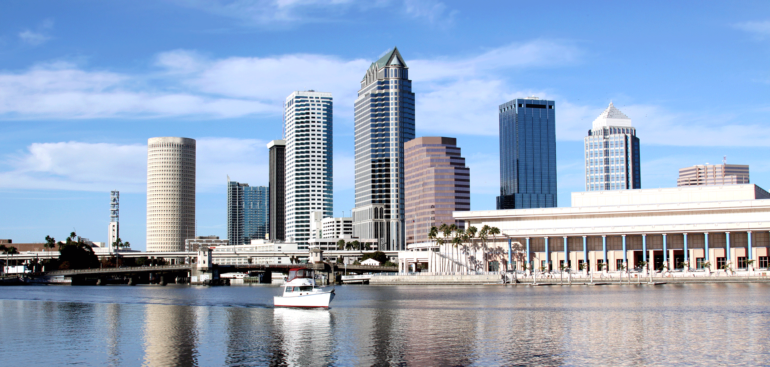Investing in distressed real estate has the potential to be a lucrative strategy, but it involves significant complexities and risks that investors must carefully consider. There are many factors an investor needs to understand, from local market dynamics to broader economic trends. One of the most important factors influencing this type of investment is interest rates. Understanding how interest rates affect distressed real estate investing is critical for investors looking to navigate risks and potentially maximize their returns, and that is what we’ll focus on in this article.
Understanding Distressed Real Estate
Before diving into the relationship between interest rates and distressed real estate investing, it’s essential to understand the definition of distressed real estate. Distressed properties are typically those that are under foreclosure, in pre-foreclosure, or are otherwise being sold by motivated sellers at a significant discount. This can also include residential or commercial properties that are under development, but the developers are not able to complete the project due to financial constraints.
These properties have the potential to offer substantial returns if investors are able to purchase them significantly below market value, though this potential is accompanied by considerable risk. Investors can then use a few different strategies in an effort to increase the value of the properties, for example renovating and then selling a property for a profit, renting a property out for a steady income, or completing a building project
The Role of Interest Rates in Real Estate
Interest rates, set by central banks like the Federal Reserve in the United States, are a critical economic tool used to control inflation and stabilize the economy. These rates directly influence the cost of borrowing money. For real estate investors, interest rates determine the cost of mortgages and other financing options.
When interest rates are low, borrowing money is cheaper. This can encourage more investors to enter the real estate market, driving up demand for properties. Conversely, when interest rates rise, the cost of borrowing increases, which can dampen demand and make it more challenging for investors to finance their purchases.
Impact on Distressed Real Estate
So how can interest rates impact distressed real estate investing? As described earlier, when interest rates are low, more investors enter the real estate market, and may take on more debt to fund their purchases as money is “cheap.” But consider what would happen when interest rates then begin to rise. There would be numerous effects that could lead to the creation of distressed properties. As we saw during the 2008 financial crisis, some home buyers purchased properties with adjustable-rate mortgages that initially featured low interest rates, which later increased, leading to higher mortgage payments and financial distress.
The same could hold true for developers. A developer may take on a large building project when interest rates are low, but as rates rise it will become more expensive for that developer to complete the project, and they may “run out of money” and be forced to sell. Rising interest rates are typically paired with higher inflation, increasing the cost of building supplies which could put a further squeeze on developers if they haven’t locked in prices.
Though in a rising interest rate environment there may be less overall demand for real estate, it’s also a time that savvy investors who carefully assess the risks can look for potential distressed opportunities like the ones described above.
Financing Renovations and Improvements
Distressed properties may require costly renovations and improvements, or an investor may need funds to complete a building project. In a rising interest rate environment when distressed properties tend to be more available, it may also be expensive for an investor to complete these improvements. It’s important for distressed property investors to understand the scope and cost of necessary improvements before committing to an investment, as unexpected expenses can seriously impact profitability. Having significant cash on hand can be important to investors when rates are rising – you don’t want to end up buying a distressed property only to become a forced seller yourself if you’re not able to finance the needed improvements to make it a profitable investment.
In Conclusion
Interest rates are a critical factor in distressed real estate investing. While rising interest rates may not generally be seen as positive for real estate investing, this scenario can create pockets of opportunity for distressed real estate investing. Of course, successful investors should also understand market dynamics – including local market demographic trends that may impact future demand – before considering a distressed real estate investment. They also should ensure they have the cash available to manage their distressed property in order to turn it into a profitable investment.
This is where working with an experienced professional can help. If you’re an accredited investor who is interested in learning more about distressed real estate investing, we invite you to reach out and start a conversation.
The investment information provided by this Blog Post is for general informational and educational purposes only and is not a substitute for professional advice. Accordingly, before taking any actions based upon such information, we encourage you to consult with the appropriate professionals. Domicilium does not guarantee the success of any investment recommendations or strategies discussed or provided by this Blog Post. The use or reliance of any information contained on this blog post is solely at your own risk.
Investing in residential real estate involves significant risks. The value of real estate investments can fluctuate based on various factors, including market conditions, interest rates, economic changes, and other external influences. It is possible for real estate investments to lose value, and there is no guarantee that you will achieve your desired returns.
Contact Us Now for More Information
Phone: 415-630-0147

